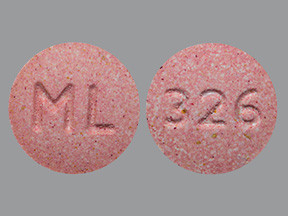VITAMIN B-12/FOLIC ACID/VITAMIN B-6 - ORAL
PHONETIC PRONUNCIATION: (vitamin B12/FOH-lick/vitamin B6)
COMMON BRAND NAME(S): Folgard, Folgard RX 2.2, Foltx, Homocysteine Formula
GENERIC NAME(S): cyanocobalamin/folic acid/pyridoxine
Uses
USES: This combination of vitamins provides vitamin B-6, vitamin B-12 and folic acid to people who do not have enough of these vitamins for good health.
How to use VITAMIN B-12/FOLIC ACID/VITAMIN B-6 - ORAL
HOW TO USE: Take this medication by mouth with or without food, usually once daily or as directed by your doctor. If stomach upset occurs, it may help to take this product with food. Use this medication regularly in order to get the most benefit from it. To help you remember, use it at the same time each day. The dosage is based on your medical condition and response to therapy.
Side Effects
Precautions
Interactions
Overdose
Images
Reviews
Faq for VITAMIN B-12/FOLIC ACID/VITAMIN B-6 - ORAL
Vitamin B-12, also known as cobalamin, is a essential vitamin required for the proper functioning of the nervous system, formation of red blood cells, and DNA synthesis. It is important for maintaining healthy nerve cells, preventing anemia, and supporting brain function.
Vitamin B-12 is naturally found in animal products such as meat, fish, poultry, eggs, and dairy products. It can also be obtained from fortified foods like cereals and nutritional yeast. However, it is typically not found in plant-based foods, making it more challenging for vegetarians and vegans to get enough B-12 through diet alone.
Individuals at a higher risk of Vitamin B-12 deficiency include vegans and vegetarians, older adults with reduced stomach acid production, individuals with gastrointestinal disorders, and those who have undergone weight loss surgery. Additionally, certain medications or conditions that affect absorption, such as metformin for diabetes or pernicious anemia, can also increase the risk.
Common symptoms of Vitamin B-12 deficiency include fatigue, weakness, pale skin, shortness of breath, tingling or numbness in hands and feet, difficulty maintaining balance, cognitive and memory problems, mood changes, and swollen or inflamed tongue.
The recommended daily intake of Vitamin B-12 varies depending on age, sex, and life stage. For adults, the recommended amount is typically 2.4 micrograms per day. It is best to consult with a healthcare professional or registered dietitian to determine the appropriate dosage for specific needs.
Folic acid, also known as Vitamin B-9, is essential for the production and maintenance of new cells, particularly red blood cells. It plays a crucial role in DNA synthesis, brain development, and preventing neural tube defects in unborn babies.
Folic acid can be found in a variety of foods, including leafy green vegetables, citrus fruits, legumes, fortified grains, and some meats. It is also available as a supplement.
Pregnant women, as well as those planning to become pregnant, should ensure they are getting enough folic acid to prevent neural tube defects in their babies. It is recommended to take a prenatal vitamin that contains folic acid before and during pregnancy. Additionally, individuals with certain medical conditions or taking certain medications may require higher folic acid intake.
While Vitamin B-6 is vital for various bodily functions, excessive intake, particularly through supplements, can lead to neurological symptoms such as numbness, tingling, loss of coordination, and nerve damage. The recommended upper limit for adults is 100 milligrams per day.
Disclaimer
IMPORTANT: HOW TO USE THIS INFORMATION: This is a summary and does NOT have all possible information about this product. This information does not assure that this product is safe, effective, or appropriate for you. This information is not individual medical advice and does not substitute for the advice of your health care professional. Always ask your health care professional for complete information about this product and your specific health needs.





No Reviews Yet